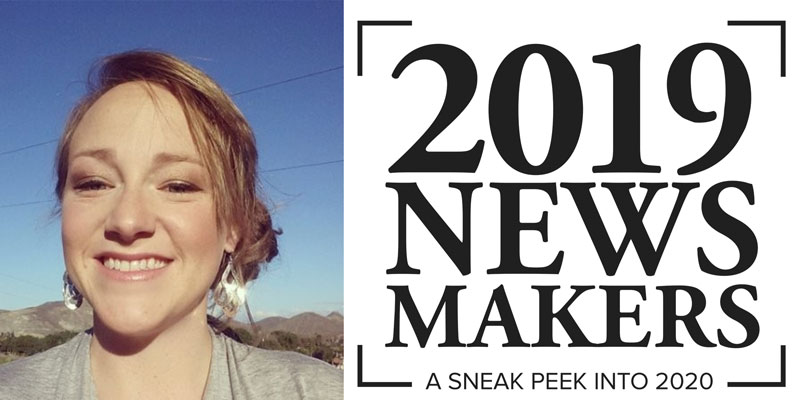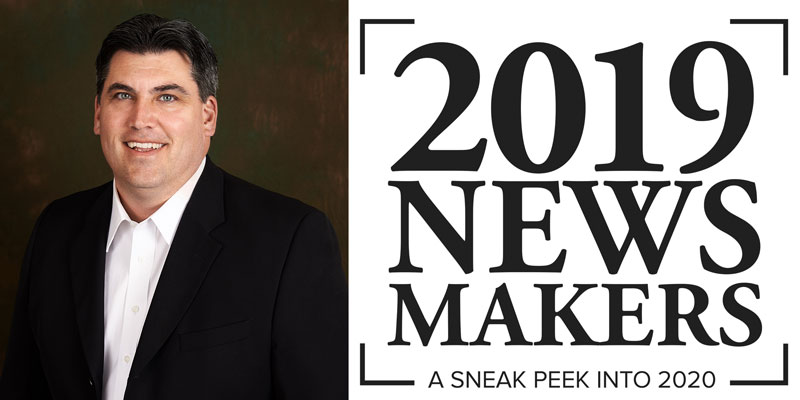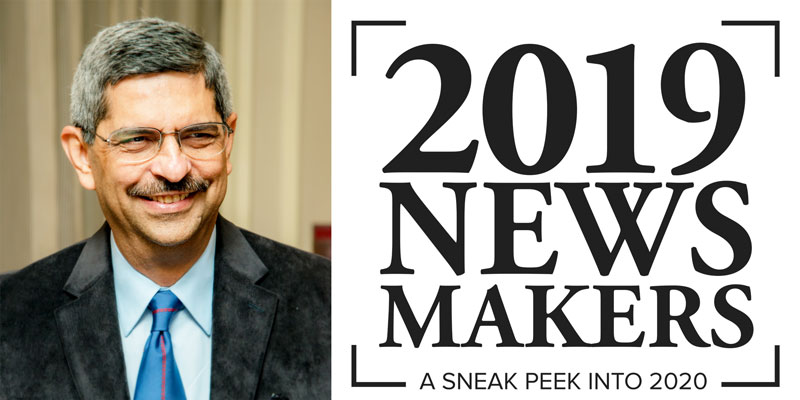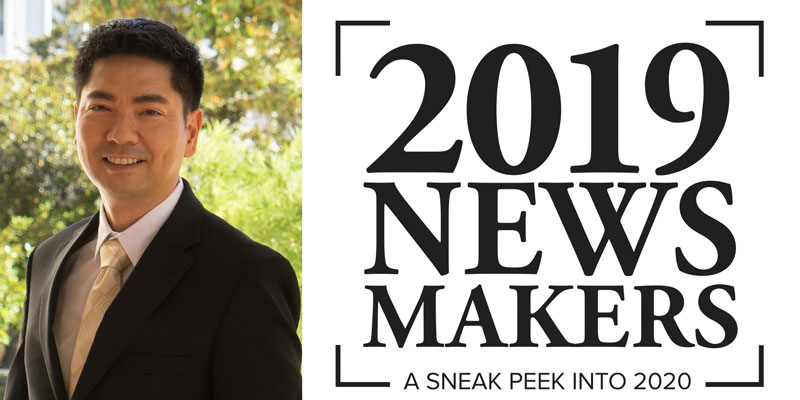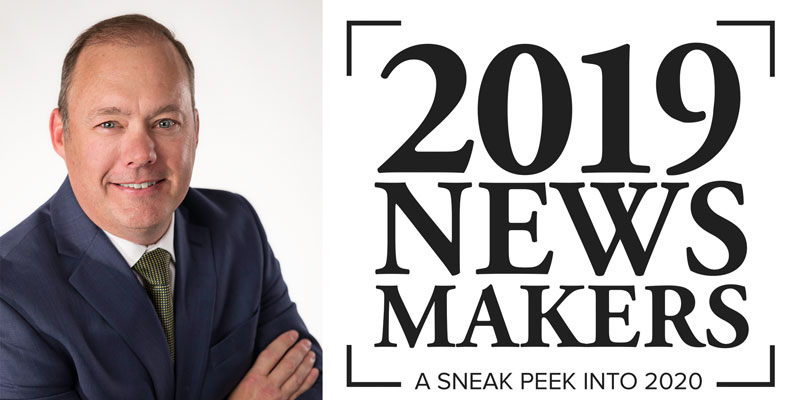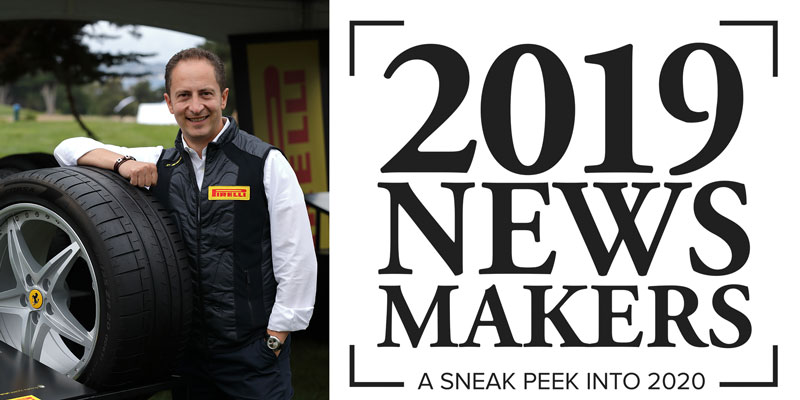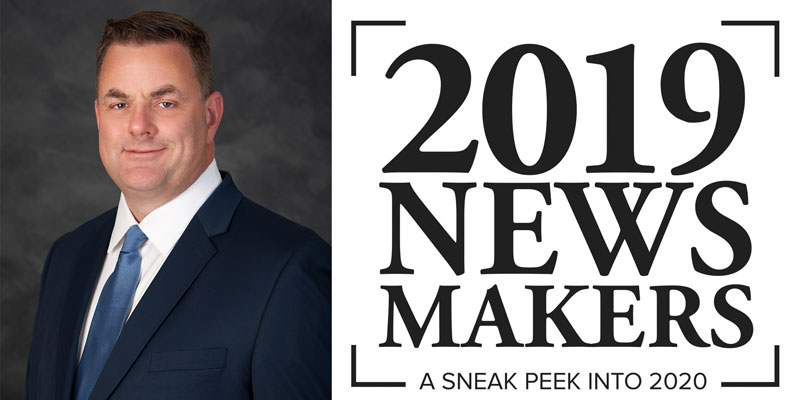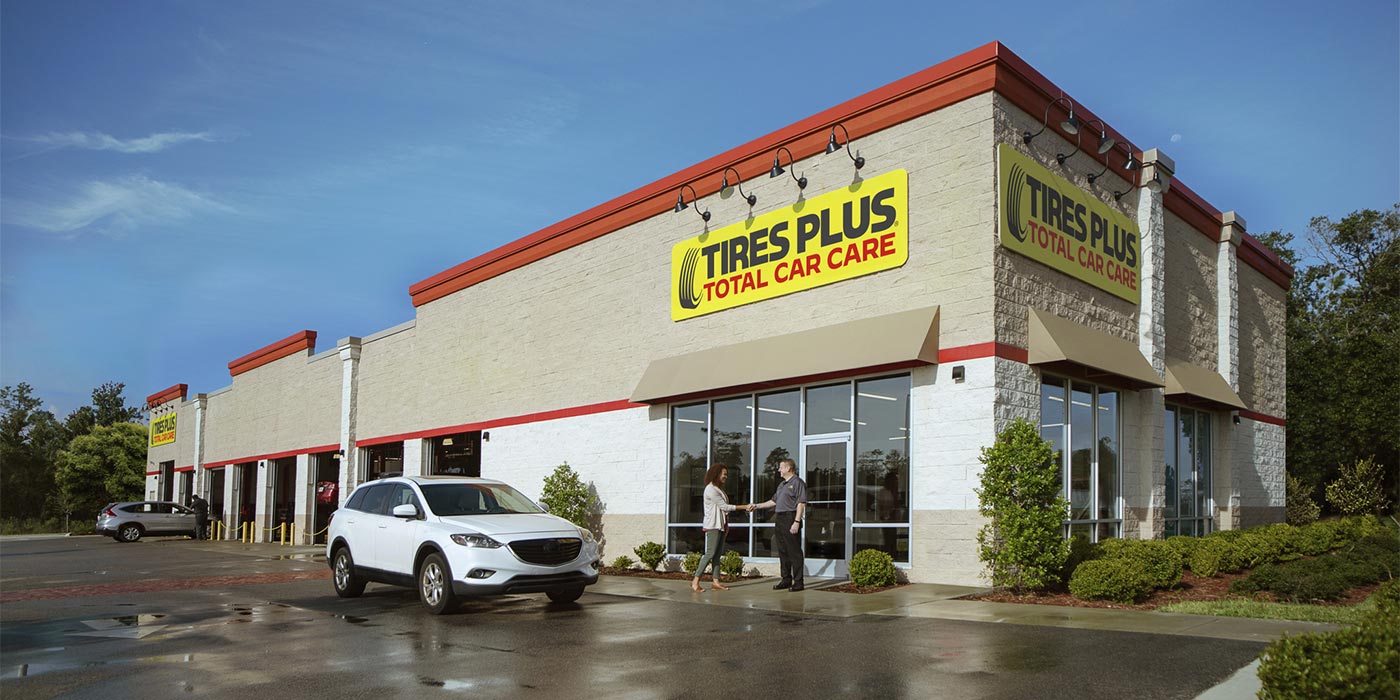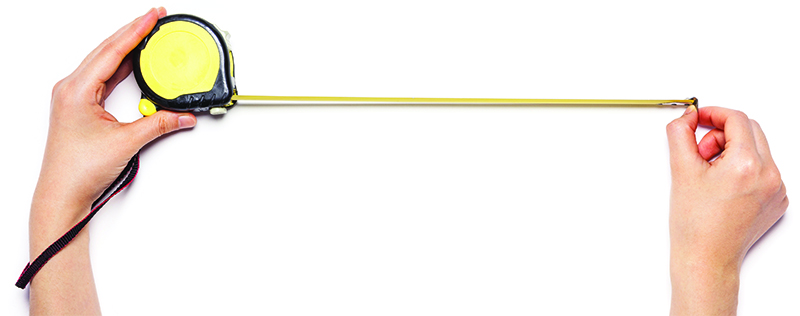 Every time someone walks into your shop or calls your dealership they’re judging your business. Are your employees helpful? Polite? Knowledgeable? Are they taking care of the customer’s true needs? Is your store clean and well organized? Or does it look tired, filthy and disheveled?
Every time someone walks into your shop or calls your dealership they’re judging your business. Are your employees helpful? Polite? Knowledgeable? Are they taking care of the customer’s true needs? Is your store clean and well organized? Or does it look tired, filthy and disheveled?
A failing grade from a consumer on any of these – and many more points – could result in the loss of their business and, in many instances, the loss of business from their friends, family and anyone they have contact with online.
Tire dealers need to be aware of what their customers are thinking and deliver not only quality service and products, but also positive customer service experiences. For tire dealers with multiple locations, consistency is also a concern. Are all the stores delivering to the same customer service standards? And are all company procedures and protocols being followed?
So how can busy tire dealers really address customer and consistency concerns?
The answer: a secret shopping program.
“It’s important that businesses know what customers want and like, but that is not sufficient. A business also must know how closely the actual customer experience mirrors the one the business desires the customer to have. That’s where mystery shopping comes in,” according to the Mystery Shopper Providers Association website. “Mystery shopping provides data that lets the business owner make quick adjustments so that the customer’s expectations are met and the customer is satisfied.”
Benefits of Mystery Shopping
A successful mystery-shopping program can be a valuable tool in any tire dealer’s business arsenal.
One key benefit of secret shopping for tire dealers is the chance to differentiate themselves from their com-petition, according to Robert Smith, manager of marketing research and analytics for Bridgestone Americas.
“Consumers by and large view tires as a commodity that are sold on price. They also tend to view the process of buying tires somewhat akin to going to the dentist,” he says. “Tire dealers need to find a way to stand out from the competition and a secret shopper program or a secret shopper-type exercise can reveal what I call the softer side; the subjective side of buying tires.”
Smith says how a customer feels about their tire buying experience will linger more powerfully in their mind than the performance of the tire (however, he notes that doesn’t diminish the importance of the tire’s quality). By listening to a customer and learning from the mystery shop-ping process, dealers can make the process of buying tires a more positive experience for customers, Smith says.
Another way tire dealers can differentiate themselves is by secret shopping the competition, says Steve Schroeder, president of Marketplace Insights (MPI), a firm that offers tire dealers secret shopping and other services.
By secretly shopping competitors via phone calls, he says, “dealers can learn how good other retailers’ selling skills are and what points of differentiation they are using.” Knowing those things will help any dealer counter those competitive thrusts, and build a stronger story for why your dealership is the superior choice.
While secret shopping can help dealers compare themselves to com-petition, the bottom line with secret shopping is to increase tire and service sales, Schroeder notes.
“In the tire and auto service industry, telephone selling skills are a core business process. How your team handles the first impression that you give to the customers,” he says, “means so much. If done properly it can lead to several new customer acquisitions per year, month, week, and even daily. If done poorly it will steer customers to your competition.”
Making just one extra sale a week can translate into $10,000 more in sales annually, Schroeder shares. That’s one positive, successful customer encounter per week, and compound that over the lifetime of that customer.
Ian Katz, executive vice president of 113 Midas franchise locations across Ohio, Michigan, northern Kentucky and western Pennsylvania, takes ad-vantage of mystery shopping, both in-store and over the phone.
Through Midas’ corporate secret caller program, the franchisee can check on their employees’ phone skills and their ability to bring a customer into the store, Katz says. With in-store secret shopping, more can be examined such as store appearance and service times, he notes.
“We have so many locations that secret shopping really helps us understand if the process that we want our guys to perform is being followed in the shops,” he says. “Our leadership can’t be in each shop everyday and by having the secret shoppers periodically drop in, it gives us a feel for whether processes are being adhered to and regularly followed.”
Katz contracts a secret shopping provider that uses real customers to visit the shop. This service allows management to verify protocol is being followed as well as get a real world perspective on service.
“Secret shopping is also nice because it basically gives us the customer’s perception of our shops and our staff,” Katz says. “Our per-ception might be different, the guy in the shop’s perception might be different, but the perception of the customer is what is most important to us. By doing this, we can get that feedback and find out if what we’re doing is what really pleases the customer.”
Getting Started
There are a variety of things that can be checked and learned through secret shopping programs. Everything from the ease of setting up an appointment, the collection of customer data and wait times to store cleanliness, the design of displays and more can be examined, the experts say.
“We provide retailers with a list of subjective and objective measurements that they can choose from to create their own custom scoring system,” says Schroeder. “If they have a push on selling a certain item, or mentioning a sale, or mentioning the latest technologies like TPMS and nitrogen inflation, we can measure whatever the retailer feels is significant and fits their needs.”
While a secret shopping provider can help dealers determine what they want to measure with a program, dealers should start with having a clear idea on why they want to conduct a mystery shopping, says Ron Welty, owner and chief officer of IntelliShop, a secret shopper provider.
“They should really start at the end, so to speak. They should develop a list of goals and objectives; at the end of the quarter or six-month period they hope to have achieved XYZ by doing this type of program,” he says.
Goals can be broad-based, such as offering better customer experiences. Or goals can be specific, such as increasing tire sales rates by 10%, Welty says.
He says that mystery-shopping experiences aren’t used as a “gotcha” services anymore, and he advises against using one for such practice. Companies should use the information gathered in secret shopping to identify best practices and re-coach employees to follow those practices. Or the data should be used to identify areas where continued training is needed if there are deficiencies, he says.
“One best practice is to use mystery shopping as a combination of improving a customer experience and measuring if your current processes are being delivered like you want them to be,” Welty says.
Bridgestone’s Smith advises that if a dealer wants to get the most out of secret shopping they need to acknowledge the good and the bad practices at their locations.
“Dealers have to have the courage enough to hear the results and be prepared to act,” he says. “It’s not uncommon to say we want to learn the answer to something, but when that answer comes back and its not particularly popular, it’s tempting to reject the information. If a dealer wants to engage in secret shopping, they have to have a thick enough skin to hear both the bad and the good that comes back with it.
“If a dealer does a secret shopper program and gleans certain insights, he or she should sit down with their staff and have a profound heart-to-heart conversation about what they learned,” Smith adds. “Assuming the results of the secret shopper indicated some good things as well as some bad things, I believe that dealer should then stress to their employees how things should be done and also demonstrate it by walking the walk.”
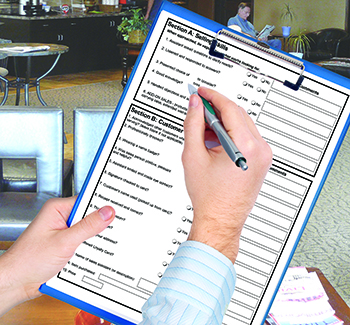 Before announcing a secret shopping program to employees, experts agree that dealers should secretly mystery shop their stores a few times to establish a baseline to measure against.
Before announcing a secret shopping program to employees, experts agree that dealers should secretly mystery shop their stores a few times to establish a baseline to measure against.
MPI’s Schroeder, whose company offers coaching as part of its secret shopping program, says when you tell employees about the possibility of secret shoppers ahead of time you get a false benchmark.
“I like the baseline approach because it demonstrates to the owner how good or bad they were before they started,” he says. “It’s the old adage when per-formance is measured, performance improves. It’s just natural human behavior when you know someone is tracking it you try harder. So then you’re getting a false benchmark baseline.”
After a baseline is established, Schroeder likes to measure employee’s performance after they learn of a secret shopper program, and then once again after training against the first results, he says.
IntelliShop’s Welty agrees that telling employees about a secret shop-ping program can skew data. And the knowledge that there’s a secret shopping program will really keeps employees on their toes.
“Companies should conduct a blind round without telling anyone about the mystery shopping program, to base test and see where their company performs. Then before the next round of mystery shopping, have some communication to let employees know the business is going to do a shopping program,” he says.
“Once everyone is aware of exactly what’s going to be measured, they’ll hopefully start to change their mindset a little bit. If they’re not already doing so, maybe they will once they discover that anyone walking through that door could be the mystery shopper.”
“I always tell clients to let their employees know that they’re going to be mystery shopping them, and that they’ll probably see a 5% improvement in behavior as they stay on their toes,” Welty adds.
When trying to determine how often to mystery shop a location or locations, tire dealers should consider their company’s capabilities and ability to handle large amounts of in-formation and act upon it.
“Often we’ll tell clients they really shouldn’t do that much, even though its counterintuitive to our sales efforts,” Welty says. “The worst thing we could do is just give them so much data that it’s overwhelming, and they really don’t know what to do with it. We try to find a nice balance between having enough information and having enough time and resources to handle all of it and affect change and improvement within their organization.”
In addition, tire dealers must decide how long to run a program. The experts say companies should use a program as long as it’s effective, but they also urge continual use as eliminating a shopping program may allow employees to revert to pre-secret shopping performance.
“They should run secret shopping forever. Even if they tone it down to one call per month,” says MPI’s Schroeder. “I had a retailer in Florida with 15 outlets that was doing it for two or three years and had gotten the stores up to 85%-90%, consistently scoring very high.
“He called me up one January and said, ‘You know what January, February, March, April…those months are a little slow. I think I’m going to shut the program off for those four months and turn the program back on in May. We called him back in May, and sure enough he was in a hurry to start the program.
“He called me back in June and said that shutting it down for four months was the worst mistake he every made. They had to basically start all over again.”
Employee Buy-In
Welty emphasizes that in order to successfully utilize mystery shopping, management must get behind the program.
“Mystery shopping generally doesn’t work well as another dictated corporate initiative,” he says. “Senior management really needs to buy into this program for it to be successful and become part of the dealership culture. When it does, then it can become extremely effective within a company.”
In order for that to happen, com-panies must be upfront with their employees about the program, he says. “Have open and clear lines of communication about the mystery shopping program,” Welty advises. “Let your people know it’s going to be done. Share with them exactly what is going to be measured and share the results – good or bad.”
“Mystery shopping, when it’s used effectively, is done as an incentive. If people don’t know what they’re going to be measured on, it’s tough for them to achieve desired results,” he adds.
Schroeder notes that employee buy-in is also critical to running a successful program. One way to get employees on board with the program is to let them hear an example of a good call and compare that to a bad call, and then ask them how they think each call would impact sales, he says. He also advises sharing mystery-shopped phone calls with the competition, and compare those with their store.
“You can play a competitor’s call back to your associates and say ‘Hey, listen to what Joe’s Tire down the road is doing. See how good they are. This is what you’re up against everyday,’” Schroeder says. “It really helps get buy-in with the associates and they understand how important it is to improve phone skills.”
Schroeder says the best way for a dealer to get invol-ved in mystery shopping is to take an active role in reviewing the results directly with their associates. Positive recognition and incentives for proper execution also help with the program’s effectiveness.
“Posting scores on the wall and simple reward and recognition tools can greatly increase the effectiveness of the program. Many dealers actually spiff or incentivize their associates based on the performance results,” he says.
Katz shares his company’s secret shopping reports with district managers and the supervisors in each market and they share it with their teams.
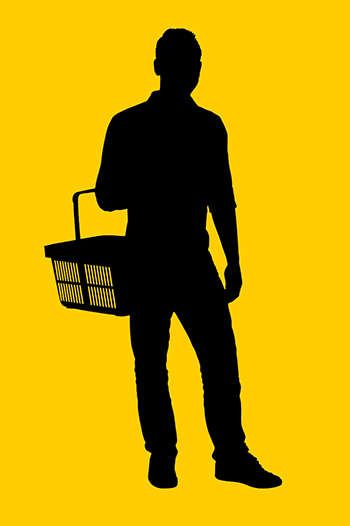 “We share the good, bad, ugly, or otherwise,” he says. “We want our managers to review with them. ‘Nice work on this. You need a little work on this. You thought you were doing this right and that the customer was receiving it well, but that’s not what they’re telling us.’”
“We share the good, bad, ugly, or otherwise,” he says. “We want our managers to review with them. ‘Nice work on this. You need a little work on this. You thought you were doing this right and that the customer was receiving it well, but that’s not what they’re telling us.’”
Katz notes that sometimes the company will also share information from other Midas stores nationwide. “We will sometimes send out a report to everyone and say, ‘Here’s an instance where what this manager did or what this technician did was great and worked out well. This is the kind of thing we need everybody to be on board with,’” he says. “And other times we’re like, ‘Look at what happened here. We’re lazy or careless, and didn’t follow the process and look at how disappointed this shopper was.’”
“I’ve heard a lot of the guys in the shops say they like seeing the feedback, too. It encourages the guys in the shop that are running the shop,” Katz continues. “If it’s positive feedback, it reinforces that what they’re doing is right and customers are appreciating it. And they’ll see that the guy eating lunch when he should have been working on the car turns off a customer. It’s nice for those guys to see that.”
Shopping Tips
Katz, who has been using secret shopping for nearly nine years, has a few additional tips for dealers based on experience.
When looking for a secret shopping provider, Katz suggests finding one that is responsive. “I think it’s important to have a shopping company that’s responsive. Because you will have shops that want to basically dispute what the shopper has come up with,” he says. “You want to make sure you’re with someone who is responsive and will get in touch with the shopper and get more of the story.”
Katz also suggests to continually update the report mystery shoppers are filling out to reflect the current goals and strategy of the business. If you eliminate or add a company policy, make sure the new report reflects that, he says.
“It’s been good to us. I think most tire store owners would benefit from having some kind of secret shopper program,” he says.
So whether you have one store or several locations and you need to maintain consistency or you’re a dealer looking to review your customer service and customer retention efforts, it’s no secret that mystery shopping can help.

